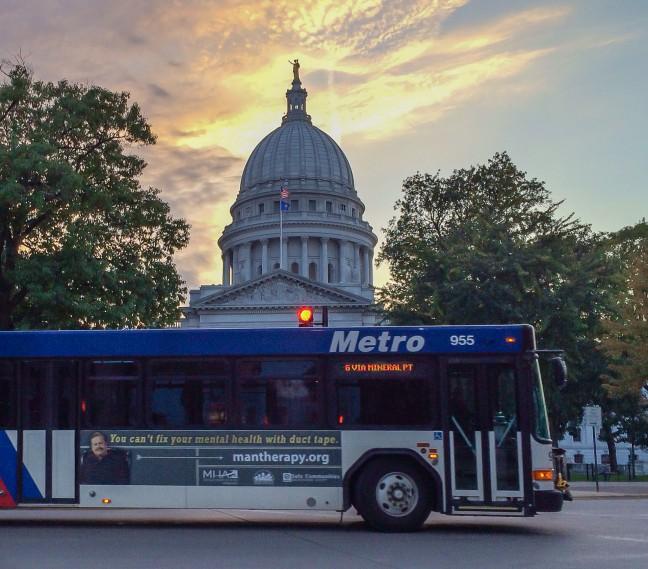Wisconsin’s lack of transportation funds has disproportionally impacted people with disabilities.
Many people are unable to drive because of disabilities or because they cannot afford a car, Barbara Beckert, Disability Rights Wisconsin director, said. Such people rely on public transportation options like Paratransit to get around, but these options have been disappearing over time, she said.
“Wisconsin has not prioritized increasing funds for transportation for people with disabilities,” Beckert said.
Under the Americans with Disabilities Act, entities that receive federal assistance must use those funds to help individuals with disabilities access resources just as easily as individuals without disabilities, Wisconsin Department of Transportation Transit Chief Ian Ritz said. In Madison, entities like Madison Metro provide public transportation opportunities to everyone.
It is relatively easier for people with disabilities in urban areas, like Madison, to access public transportation, Beckert said. But public transportation options have decreased or do not exist in many parts of the state, negatively affecting those with disabilities.
Ritz said there are quite a few programs that provide transportation accommodating individuals with disabilities in rural areas. One such program provides transportation funding assistance to every county based on the percentage of individuals with disabilities and seniors living there. Ritz said the program has been “fairly successful” in providing transit services throughout the state.
Beckert said Wisconsin’s transportation system also needs to be better coordinated on state, regional and local levels. Some public transportation only circulates within a particular county, which is inconvenient for people who need to travel outside that region. Ritz said improving coordination on all levels is a priority for the Wisconsin DOT and one that they’re working toward.
Some people with disabilities and elderly adults are covered under Medicaid, which includes providing transportation to and from their medical appointments, Beckert said. Wisconsin Department of Health Services and MTM organize these transportation services but both companies have not been coordinating very well, she said. Some patients cannot get timely access to their appointments, which negatively impacts their health.
Beckert said state lawmakers should restore transit operating aid, which serves as a funding source for transportation, but Wisconsin Department of Transportation did not request new funds for transit aid for the 2017-19 budget. She said Disability Rights Wisconsin has recommended an $18.8 million increase in this aid to counter DOT’s inaction.
Another service called Specialized Transportation Assistance Program provides assistance to older adults and people with disabilities. There has been an increase in funding for this program, but it’s not enough, Beckert said.
“Wisconsin’s aging population is growing significantly,” Beckert said. “We would like to see a more significant increase in transport for them as well.”
Wisconsin DOT requested approximately $13 million in its 2017-19 budget request. Ritz said the request includes a two percent increase annually during the biennium for transportation for individuals with disabilities and seniors. This amounts to nearly $260,000 extra each year. While this is not as much money as Beckert said is necessary, Ritz said these extra funds will help address the transportation challenges that people with disabilities face.
Beckert said people with disabilities should speak up about problems they face. She said their stories will highlight the importance of transportation in their lives.
Gov. Scott Walker said in a statement that he will continue to invest in accessible transportation so people with disabilities can work competitively in their communities.
“We recognize Wisconsinites with developmental disabilities offer a diverse set of strengths and skills that benefit their communities as a whole,” Walker said.


